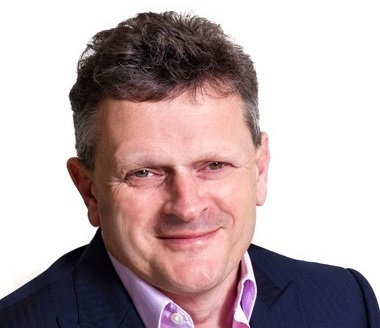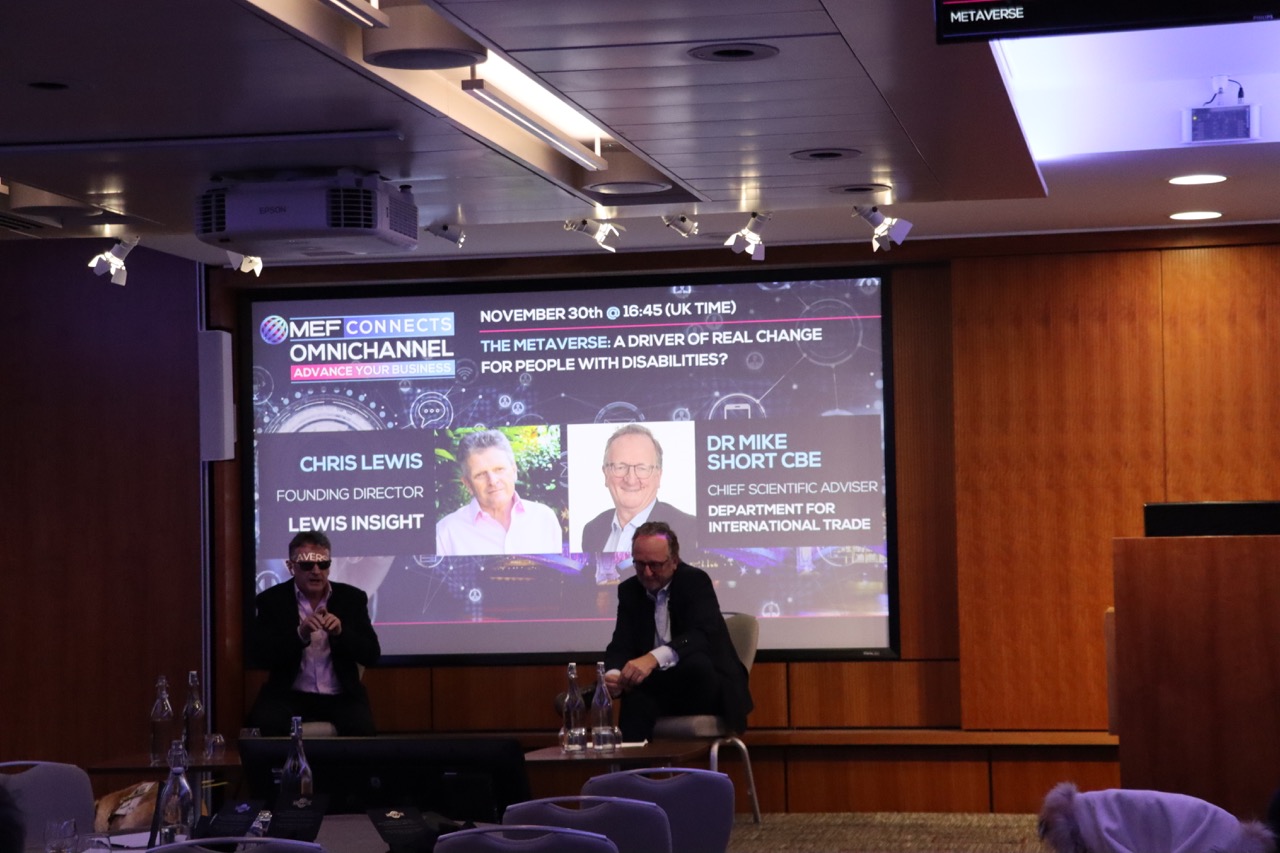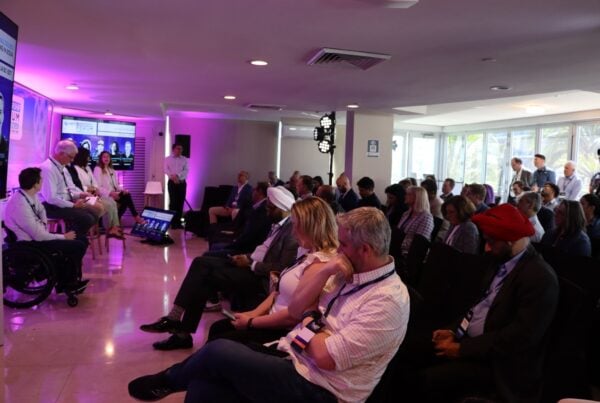CEO of Lewis Insight, Chris Lewis shares an overview of a recent conversation held during MEF CONNECTS Omnichannel, where he and Dr Mike Short CBE discussed the metaverse, and what it might mean for people with disability.
It was my pleasure to be on stage with Dr Mike Short at the MEF event in London this month.
Mike’s history working in the telecoms industry with BT, Cellnet , O2 and Telefonica has now been complemented by his five years as Chief Scientific Advisor at the Department of International Trade in the UK.
We sat down to discuss the Metaverse and how it might help People With Disability (PWD).
Some highlights of the interaction were:
The demands for innovation and help in understanding the impact of Web 3.0, NFTs, and the potential impact of the Metaverse have grown and grown.
People want to understand the impact on their business, the ability to trade internationally and not to be left behind.
In the UK there are over 300 incubators and accelerators looking at innovation , and new opportunities such as WEB 3.0 and the Metaverse. A major portion of this is from the universities but Multi-National Corporations are also heavily involved.
Web 3.0 focuses on the 3-dimensional world which is, by definition more visual and indeed more international. And, of course, if this is to be accessible to and inclusive for everyone the hooks need to be built in to make it so from day one.
Sport and entertainment are already sharing 3D graphics as part of their shift in service. This is B2B for now but will inevitably move to B2C.
Holograms and 3D imaging exist now and are leading to scale up solutions and 3D collaboration in the future. But, once again, very visual and not designed inclusively.
Does the Metaverse give us the opportunity to build a digital twin of life?
XR is being used today to visualise what might be inside a building during an emergency situation.
Extending that to model how someone with a disability interacts with their environment presents some major advancements in the whole digital interaction world.
As a blind person, will my digital twin be able to see? Can that ‘seeing’ digital twin feed information back to me in the real world about the layout of a room, where the door is to the restaurant or what facial expression Mike has while I am asking him a question?
As we develop the Metaverse in its many manifestations we have the option to allow individuals to interact with it in many ways that they like or addressing particular restrictions.
So gesturing, shouting, and ultimately brain wave interpretation can all act as reasonable interaction channels with the Metaverse.
Tracking and logging all of these interactions will also form a critical part of the Metaverse. Imagine all of the potential information that flows off a patient getting a remote check up from their doctor. Multiple types of data flow, multiple channels through which they run and AI playing an interpretive role at various points.
The World Cup also gives us a hint of what is to come. The stadia are full of data and analysis about players and actions. Being able to get your preferred data set and watch your preferred player on your local screen is a step towards the Metaverse.
The goal of miniaturising VR headsets down to a sensible pair of glasses also runs in parallel with work being done in the vision impaired and cognitively impaired worlds. So then we can see a convergence between formerly very isolated disability related research and that of the mainstream consumer electronics worlds.
This will only benefit everyone in the long run through economies of scale and development being spread throughout the world.
We should emphasise that we are by no means at the end of the journey. A lot of great progress has been made within individual sectors such as vision and hearing impaired. Mobility is somewhat more fragmented but the growth in power and accessibility of smart phones in particular, complemented by smart speakers and wearables is giving us optimism that it will accelerate and bring many more opportunities for all. And, this isn’t just a Social Responsibility issue, bringing the excluded parties into the market offers a revenue opportunity for those embracing inclusion.
The call to arms for everyone is simple: building an inclusive future is everyone’s responsibility. We are very lucky in the technology sector as it shifts to be more software-centric, that we can build inclusion in from scratch.
So now is your chance to go out and understand how the Metaverse will change business and society and be sure to push the message of Inclusion.
In the meantime, you could take a break and listen/watch the full session from the event!






